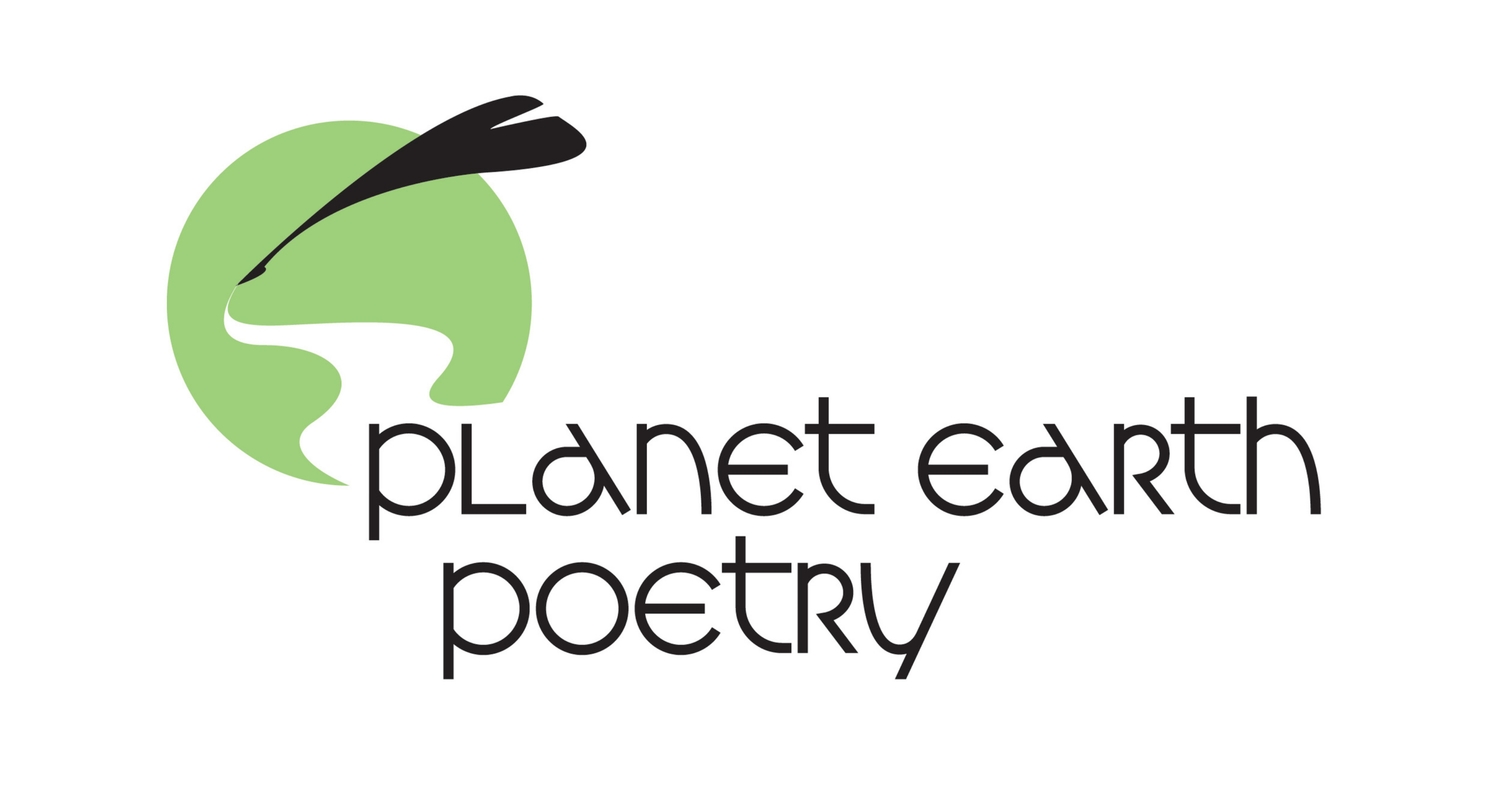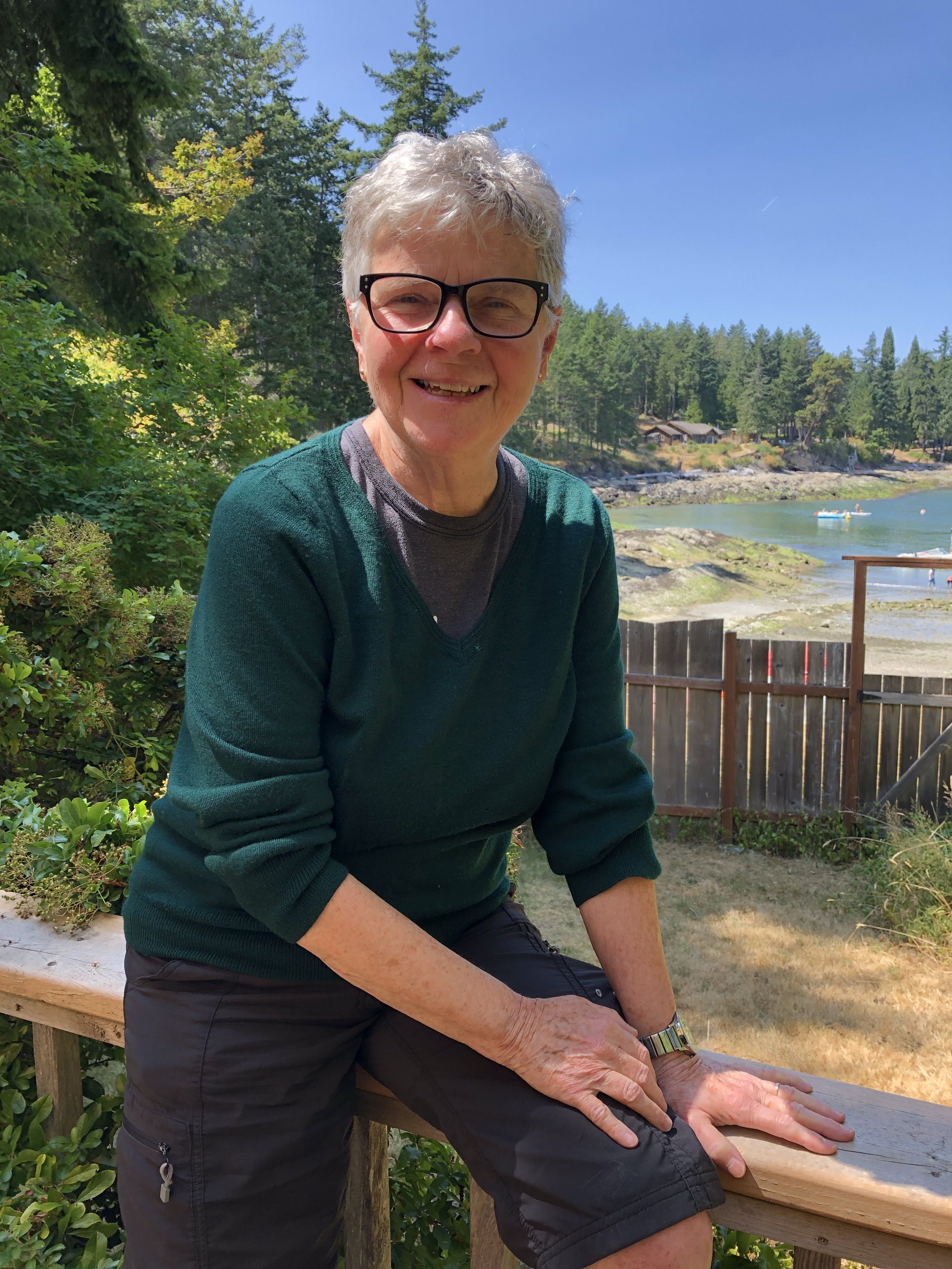REVIEWER: Wendy Donawa is grateful to live on the unceded territory of the Songhees and Esquimalt peoples, and to see the Salish Sea and the Sooke Hills from the window over her desk. Our Bodies’ Unanswered Questions is her second collection.
Poet Wendy Donawa
unpacking the poem:
Regional reviewers focus on regional poems
Reviewer Wendy Donawa unpacks a different poem every month. She examines the poem in a way she hopes is helpful for readers and other poets to understand how craft works in a particular poem, for a particular effect.
MAY 2024: ARLEEN PARE
“After Breakfast Comes The Light”
droplets spangle the mid-panel of my bedroom window
only the mid-panel the rain shower that fast precise
beyond the window hydro wires bisect the maple tips thin to red
beyond the maple a quarter rainbow clichés the sky the clichéd sky is blue
sun blinds clears the sidewalk saturates buds on the viburnum
cars shine chrome doors yellow a man leaves his house in green trousers
the street washes itself in detail almost too much to bear
the clarity the hopefulness of it all
white trim partitions one house from another
to say the street below approximates perfection
is to engage the imperfect to say
the line of rooftops reaches out towards infinity
is to pin the eye to the horizon
a white dog at the end of a purple leash
a boy in a pink hat the desire for the original
might be the original sin wanting all things new again but
who can help it who refuses
paradise when light comes after sudden rain
Arleen Paré is a Victoria writer. She has ten books of poetry, including a chapbook. She has been short-listed for the BC Dorothy Livesay BC Award for Poetry and has won a Golden Crown Award for Lesbian Poetry, twice, the Victoria Butler Book Prize, a CBC Bookie Award, the bpnichols chapbook award, and a Governor Generals’ Award for Poetry. She lives with her wife in Victoria on the traditional territories of the Lekwungen speaking peoples of the Coast Salish Nation.
Unpacking “After Breakfast Comes the Light” by Arleen Paré
Amidst the cacophony of our present daily world, what is required to attract our attention: world-changing financial upheaval, scandal, war, climate disasters?
Not always. Arleen Paré’s poem “After Breakfast Comes the Light,” from her 2020 poetry collection Earle Street, evades those dystopian themes. The poet invests power in the simplest of images that accumulate with the clarity of childrens’ coloured blocks: reddening maples, yellow doors, “white dog with purple leash,” the man’s green pants and the boy’s pink hat. Readers will clearly visualize this vivid portrayal of a suburban neighbourhood street after rain.
Its apparent simplicity is engaging but misleading as Arleen Paré (whose many accolades include the Governor-General’s Literary Award) leads the reader into deeper contemplation.
Themes for her book as a whole evolve largely from observations the poet made through the upstairs window over her desk. But she also brings the reader insights through her philosophical, psychological, historical, and feminist lenses. The neighbourhood is a living organism: neighbours move in, move away, die, have babies, squabble, and plant gardens, while trees continue their own timeless life-cycles. The neighbourhood is but one iteration of a territory that has had many transformations. Built over ancient “rivers, tracks, ridges, migrations” (this from another poem, “Before streets there were streets,” p. 23), Paré also considers current environmental damage, the heavy matter of life on another’s unceded land, the social costs of “reconstruction.”
But “After Breakfast Comes the light” with its light and colour, also expresses a longing for transcendence; it is woven with images of washing, cleansing, and a hopefulness that seems almost redemptive. Hopeful but never sentimental; these crisp couplets include the poet’s tongue-in-cheek acknowledgement of her own clichés!
No coincidence that this poem is placed near the end of the manuscript, summing up with its hankering for a new world clean and shining. The clichéd sun with its quarter rainbow, rooftops reaching towards infinity, the sun-saturated buds: “wanting all things new again” might be an “original sin” of self-delusion, but “who can help it”? Perhaps in our imperfect world it is enough “to engage the imperfect”; perhaps “approximate perfection” is enough to celebrate the beauty of spangled light after those “fast precise” showers of life-giving rain.
Wendy Donawa
Unpacking the Poem 2024 ©



